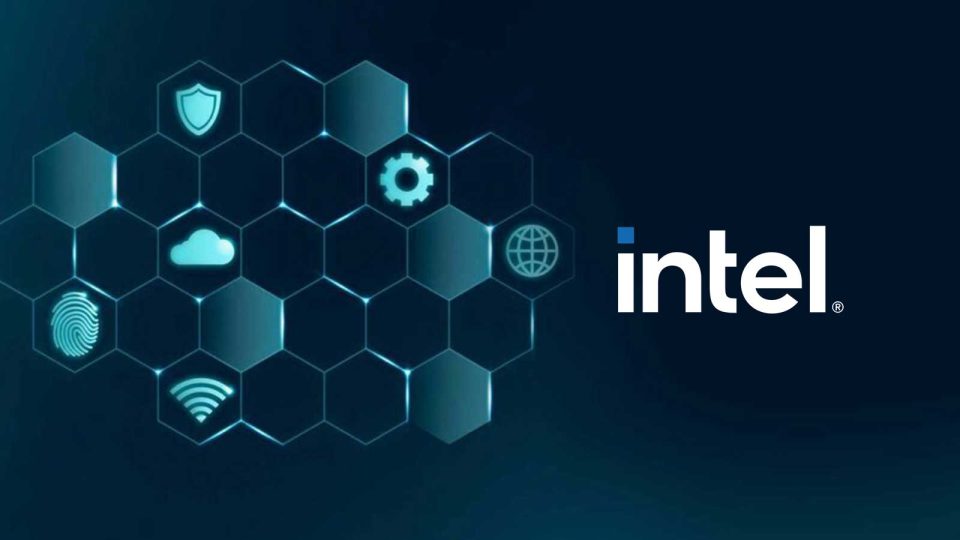Intel, in partnership with Amazon Web Services, Cisco, NTT DATA, Ericsson, and Nokia, deploys private 5G network solutions worldwide. The surge in demand for private 5G networks in 2024 reflects enterprises’ quest for scalable compute solutions, vital for the next wave of AI applications and digital transformation. With Gartner predicting that over 50% of enterprise data will be created and processed outside traditional centers by 2025, Intel’s collaborations aim to meet this soaring demand, offering customers access to diverse private 5G solutions and vertical market deployments globally.
These deployments mark the culmination of extensive investment, development, collaboration, and lab trials, transitioning into mainstream adoption, and setting a benchmark for industry excellence.
CIO Influence News: Intel Teams with Partners to Enable and Grow End-to-End Private Networks Market
Intel’s Contribution
Through its comprehensive portfolio of end-to-end hardware and software products, including processors, Ethernet, FlexRAN, OpenVINO, and 5G core software offerings, Intel, in collaboration with industry leaders, is dismantling barriers. This enables operators to monetize networks effectively and empowers enterprises to swiftly design and implement intelligent private networks across various industry verticals. These sectors encompass manufacturing, transportation hubs, mining, utilities, healthcare, education, and more.
Customer Implications
In recent years, 5G has emerged as a catalyst for industry transformation. With the emergence of generative AI, enterprises are harnessing the potential of 5G, AI, and edge computing convergence within private networks. This convergence aims to enhance connectivity, data security, and operational efficiencies tailored to specific industry objectives and initiatives. Private 5G networks offer customers a streamlined pathway to deliver high-bandwidth, low-latency computing capabilities within secure environments, crucial for addressing the most demanding edge workloads.
Private 5G Deployments and Innovations
- Amazon Web Services (AWS): Collaborating with Intel, AWS expands private network deployments across vertical markets. Through the Integrated Private Wireless (IPW) program, AWS customers gain access to Amdocs Mobile Private Network (MPN) services, powered by Intel® Xeon® processors, enhancing digital transformation efforts.
- Aramco Digital: Aramco Digital and Intel established Saudi Arabia’s inaugural Open RAN Development Center, driving private 5G advancements for the industrial sector, fostering innovation, and contributing to Saudi Arabia’s digital transformation landscape.
- Cisco/NTT Data: Transforming RAI Amsterdam into Europe’s first smart venue, Cisco and NTT DATA leverage Intel technology to provide high-speed, low-latency connectivity, enabling real-time insights for smartphones, IoT devices, and data processing.
- Ericsson: Collaborating with Expeto and Intel, Ericsson deploys a private 5G network at Tacoma Tideflats, supporting local enterprises in modernizing operations and enhancing port infrastructure, freight movement, supply chains, and manufacturing.
- Future Technologies: Utilizing Intel and Nokia’s private 5G solutions, Future Technologies secures multimillion-dollar contracts for Fortune 100, Fortune 500, and Fortune 1000 manufacturers. These contracts support connected worker solutions, autonomous robotics, asset management, and industrial automation.
- Nokia: Nokia’s Digital Automation Cloud (DAC) private wireless solution, powered by Intel technologies, enables private 4.9G/LTE and 5G networks for industrial systems and workers globally, including deployments at stürmsfs ag in Switzerland.
- Pegatron 5G: Pegatron 5G, in collaboration with Viettel, establishes its first overseas all-5G smart factory in Vietnam, utilizing Intel’s private 5G product portfolio for broad-based connectivity, high throughput, low latency, and zero-trust security.
- Red Hat/Minsait: Red Hat, Intel, and Minsait integrate and validate a cloud-native private 5G solution, leveraging Intel FlexRAN software and Red Hat OpenShift for trusted performance and scalability.
- WWT/Federated Wireless: Deploying Neutral Host Networks in St. Louis, Missouri, WWT, Federated Wireless, and Intel facilitate seamless connectivity between private and public service providers across various vertical industries, including higher education, healthcare, and manufacturing.
“By harnessing the breadth of the Intel product portfolio with the integration capabilities and scale of our deep ecosystem, enterprises around the world can reap the benefits of a personalized private network for their business requirements. We are seeing the rapid growth of AI and edge computing combined with the connectivity of 5G drive intelligence, cost savings and innovation across developing and mature industries.” – CAROLINE CHAN, Intel vice president and general manager of the Network Business Incubator Division
FAQs
1. What are the key benefits of Intel-powered private 5G solutions?
The key benefits of Intel-powered private 5G solutions include enhanced connectivity, lower latency, higher bandwidth, improved security, scalability, and flexibility, enabling organizations to support a wide range of applications and achieve greater operational efficiency.
2. How does Intel collaborate with industry partners to deploy private 5G networks?
Intel collaborates with industry partners by providing end-to-end hardware and software solutions, including processors, Ethernet, FlexRAN, OpenVINO, and 5G core software offerings. These collaborations involve joint development, testing, and validation of private 5G network solutions tailored to specific industry needs.
3. What industries are adopting Intel’s private 5G solutions, and what use cases are they addressing?
Various industries, including manufacturing, transportation, healthcare, utilities, and education, are adopting Intel’s private 5G solutions to address diverse use cases such as real-time monitoring, predictive maintenance, autonomous vehicles, remote healthcare services, smart grid management, and immersive learning experiences.
4. What role does Intel play in accelerating digital transformation through private 5G networks?
Intel plays a crucial role in accelerating digital transformation through private 5G networks by enabling organizations to leverage advanced technologies such as artificial intelligence (AI), edge computing, and the Internet of Things (IoT). These networks provide the foundation for innovative applications, processes, and services that drive business agility, competitiveness, and growth.
5. How does Intel’s collaboration with partners like AWS, Ericsson, and Nokia impact the deployment of private 5G networks globally?
Intel’s collaboration with partners like AWS, Ericsson, and Nokia enhances the deployment of private 5G networks globally by combining their expertise, resources, and technologies. This collaboration enables organizations to access comprehensive solutions, expertise, and support for deploying, managing, and optimizing private 5G networks, ensuring seamless connectivity and performance across different regions and industries.
[To share your insights with us as part of editorial or sponsored content, please write to sghosh@martechseries.com]


